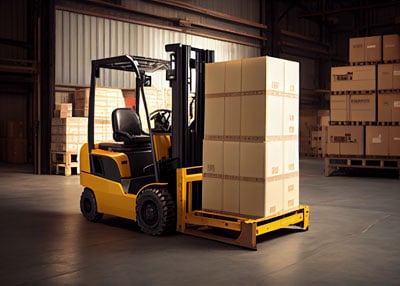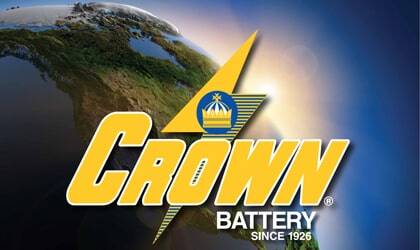Your business’s financial success depends on reliable deliveries. And during this global supply chain shortage, that’s harder than ever.
As the New York Times reported in a March 6, 2021 article:
“All the links in the supply chain are stretched. The ships, the trucks, the warehouses.”
(‘I’ve Never Seen Anything Like This’: Chaos Strikes Global Shipping)
It’s the perfect storm: Cratering demand in 2020 led to widespread production shutdowns -- and worldwide undersupply of raw materials and finished goods. Commercial driving schools shut down in 2020, worsening the truck driver shortage. Add global shortages of trucks and ships, and it’s clear that we’re in for delays -- especially as demand ramps up.
Today, you’ll learn how to protect your supply chain – including 3 weak links and seven questions you must ask your suppliers to make sure you’re covered.
Does your supply chain have these weak links?
As you know, you can’t power your equipment (or sell batteries) if your supply chain breaks – and shutdowns and delays can hurt your bottom line and your customers’ operations.
Fortunately, you can spot common weaknesess before there’s trouble -- and save yourself from headaches and costly downtime.
Weak link #1: Long supply chains
It’s common sense that long, international supply chains increase your vulnerability.
But buying domestic doesn't necessarily protect you against supply disruption.
Even some US battery manufacturers rely on long, international supply chains for raw materials and manufacturing. You won’t hear about this unless a border closes, a new tariff appears, or a materials delay or outbreak shuts down a foreign supplier or manufacturing plant.
To be clear, global supply chains are fine as long as manufacturers guarantee quality standards and reliable shipping... but in turbulent times with vulnerable supply chains, distance and borders can be a liability and a bottleneck. Crown’s shorter supply chain helps.
Crown Battery’s domestic supply chain and backup stocks can help protect you. There’s less distance and zero borders to contend with. Because we source 100% domestic critical materials and ensure 30 to 60 days of backup supplies, our customers arre protected from common delays.
Weak link #2: Lax health and safety practices
You’ll always be safer with suppliers that take employees’ health and safety seriously.For instance, Crown Battery meets or exceeds all CDC, OSHA, State, and Local guidelines. Factory employees have long been required to wear respirators and scrub in/out. And trained healthcare teams screen employees before every shift (as of July 2021). This protects our employees, families, and communities. These safety measures also help ensure uptime -- and a steady supply for your operation.
Weak link #3: Manufacturers can drop you without warning -- or file for bankruptcy
Just ask Ben Sverdlow, President of Jeffrey Allen, Inc., Florida’s leading golf car distributor to independent dealers:
“Our last battery manufacturer cut us off – with zero notice. We’d worked together for 16 years, but they thought they could get more volume working with another company. I lost a lot of sleep worrying about how I’d fill the shelves and replace them.” -- Ben Sverdlow
Fortunately, Ben’s story has a happy ending:
Ben Sverdlow says, “Crown Battery came to my rescue and helped me sleep well at night.... With previous battery companies, there was no discussion of wait time, whether deliveries would be on time.... .[Crown] got us batteries fast, and they solved problems we didn’t even know we had.”
To protect yourself, ask your suppliers these 7 Supply Chain Questions:
- “Do you manufacture all your products domestically?” If not, where do you manufacture them?
- “Do you source 100% domestic materials for critical parts?” If not, how far - and how many borders - away do they come from?
- “How many days of raw material do you keep on-hand as a backup?”
- “What health and safety practices do you have in place to protect employees and operations?”
- “How long have you been in continuous operation?”
- “Have you filed for bankruptcy?” If so, how many times?
- “Do you offer no-cost technical and sales training to help my company?”
No company can eliminate global supply chain problems. But here’s how Crown Battery protects you against supply chain issues and speeds up deliveries:
- 100% US engineering and manufacturing
- 100% domestic critical supply chain materials
- 30-60 days’ critical raw materials on hand
- Meets or exceeds all OSHA, CDC, state, and local health and safety regulations
- In continuous operation since 1926
- Realistic delivery times prevent expensive delays and surprises
- Complimentary sales and technical training programs help you grow your business, in good times and bad
If you want to learn more about how you can improve your supply chain -- and your business’s bottom line -- connect with an energy storage consultant... and get answers to your biggest questions.











